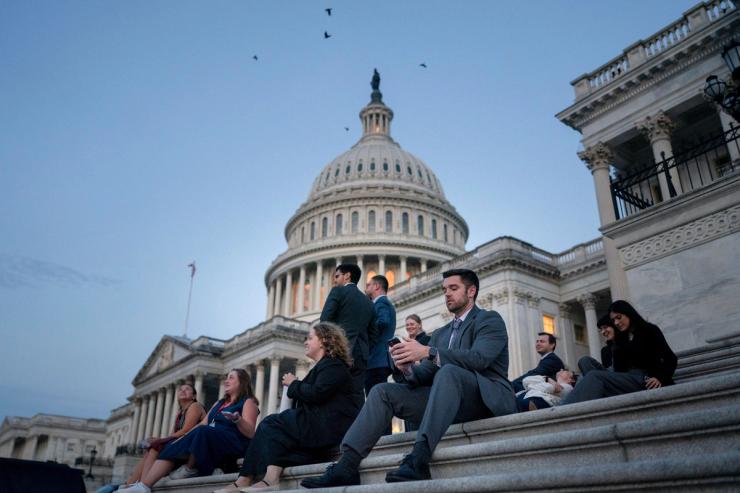The Senate on Tuesday sent President Donald Trump’s sweeping tax and spending cuts bill to the House, handing Trump a major victory days ahead of his self-imposed July 4 deadline.
The legislation passed in a 51-50 vote, with Vice President JD Vance breaking a tie. Three Republicans opposed the measure — Sens. Susan Collins of Maine, Thom Tillis of North Carolina and Rand Paul of Kentucky — alongside every Democratic senator.
Senate Republicans steered the sweeping policy bill past a filibuster by using the protections of a process known as budget reconciliation, which also required the legislation to undergo a flurry of amendment votes that stretched from early Monday to lunchtime Tuesday.
Among the most consequential amendments senators approved: removing a provision aimed at stopping states from regulating artificial intelligence, on an overwhelming 99-1 vote.
The bill also underwent more changes in a last-minute replacement version, including the removal of a punishing tax on wind and solar energy as well as a pareback of the bill’s cuts to clean energy subsidies. A rural hospital fund designed to cushion the blow of the bill’s Medicaid cuts also got doubled, from $25 billion to $50 billion.
GOP leaders struggled for 27 hours to pass the bill in a marathon voting session, ultimately winning Alaska Sen. Lisa Murkowski’s support with a series of changes.
Now the mammoth measure heads back to the House, which narrowly passed its own version at the end of May. Trump has set a Friday deadline for the bill to arrive at his desk, and the House is expected to vote on it as soon as Wednesday.
Trump is exerting significant pressure on holdouts to fall in line, but passage in the lower chamber is not guaranteed. Throughout negotiations on Monday, fiscal conservatives continued to complain about the bill’s deficit reduction levels, and Elon Musk threatened to fund challenges to Republicans who backed it, trashing them as supporters of “debt slavery.”
Plus, a number of provisions that the Senate changed after the bill first passed the House — particularly the strengthening of Medicaid cuts — could make moderate House Republicans rethink their votes.
Rep. Don Bacon, R-Neb., who in recent days announced he would not seek reelection next year, told The Wall Street Journal he is not necessarily a “yes” despite supporting the original House version.

